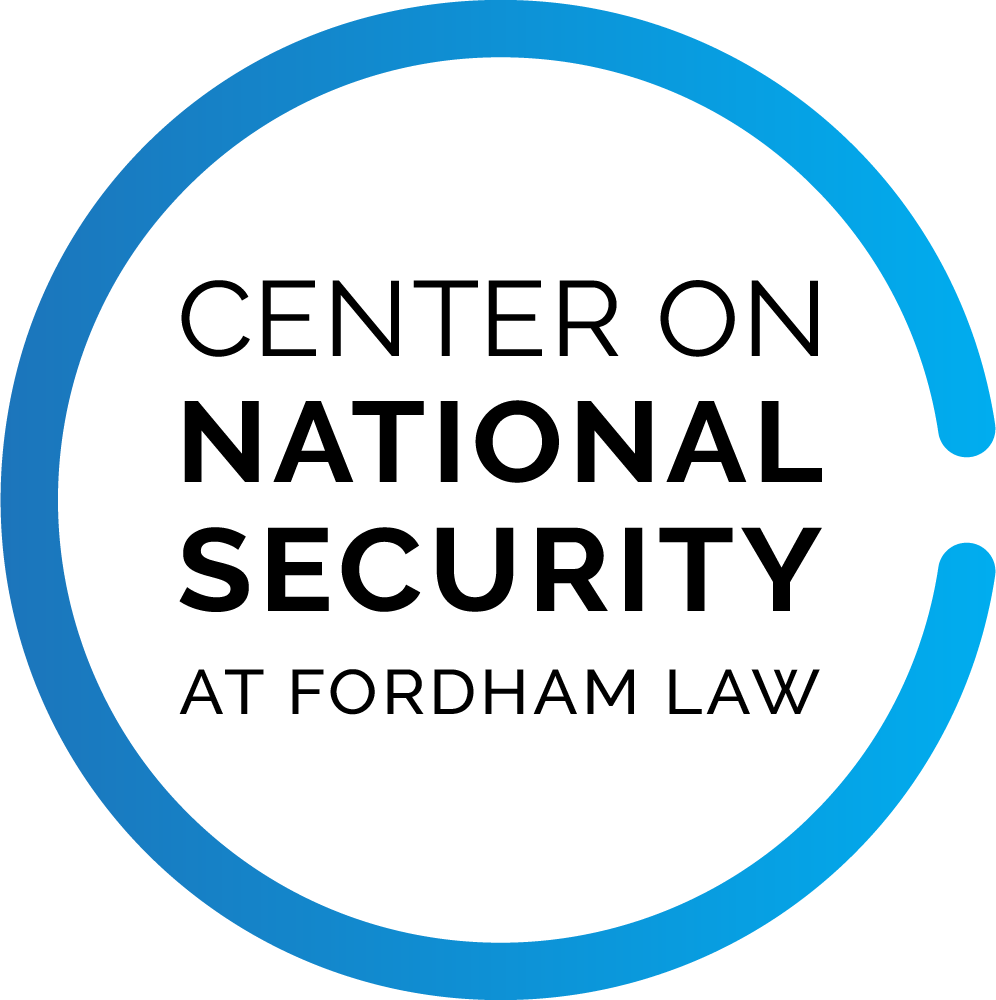By Yuan Fang, JSD Candidate at Washington University School of Law
The Whitney R. Harris World Law Institute’s third webinar in its series on COVID-19 and International law looked at Security vs. Liberty? COVID-19 and Challenges to National Security Law, and was held on June 11, 2020. The webinar was co-sponsored by the Bar Association of Metropolitan St. Louis, the International Law Association (American Branch), and the Center on National Security at Fordham Law.
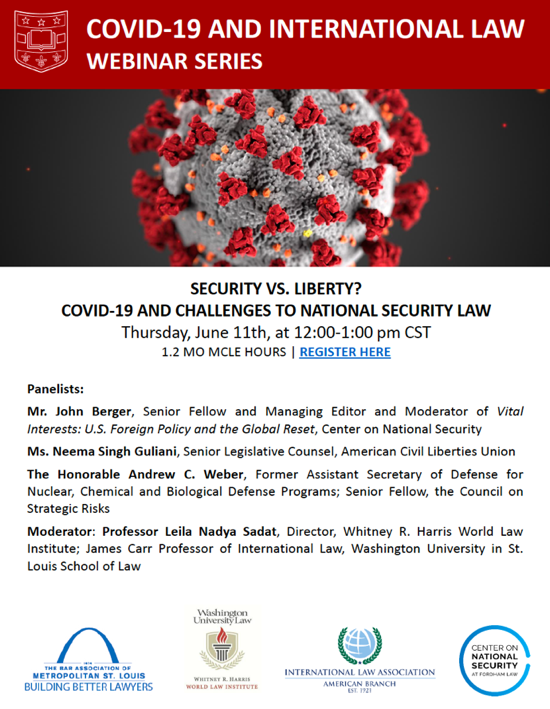
This webinar, moderated by Professor Leila Nadya Sadat, featured three experts in national security law, and attracted an audience of more than 200 viewers from around the world. The discussion was divided into two parts: first, the three panelists respectively elaborated on their given topics, before the event turned to Q&A, where further discussions were made.
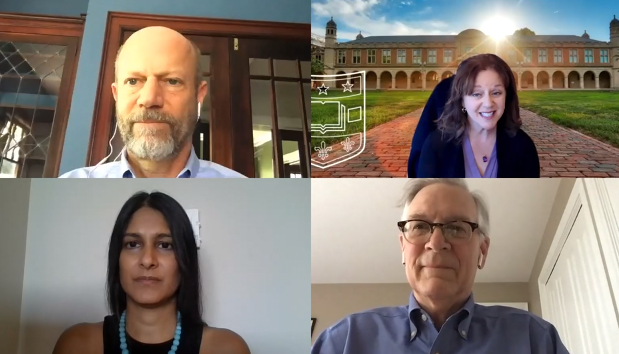
Professor Sadat opened the webinar by explaining why this topic was particularly important for this moment. Although there is no evidence that the current pandemic was a biological attack, the United States and other countries have nonetheless found themselves unprepared to respond effectively to it. “This raises serious questions about our preparedness for future pandemics,” Sadat warned. At the same time, she said, just like civil liberties were a casualty of the response to September 11, we must remain cautious of “what rights might be sacrificed for countermeasures against the Coronavirus.” Sadat then set the tone for the discussion as “how can countries best prepared for future pandemics without infringing upon rights and liberties.”

The Honorable Andrew C. Weber, Former Assistant Secretary of Defense for Nuclear, Chemical, and Biological Defense Programs, started the conversation with a brief look back at his visits to a biological factory in Kazakhstan 25 years ago and a laboratory in Ukraine 15 years ago. Mr. Weber used this reflection to raise the point that a future biological attack is not just a hypothetical threat, but a real possibility.
Weber pointed out that technology often plays as a double-edged sword in response to biological threats. On one hand, technology may increase the threats of biological weapons by making them more accessible, cheaper, faster, and easier. For instance, a Canadian team was recently able to use gene-drives technology to synthesize the horsepox virus, a relative of smallpox, a horrific disease that was declared eradicated in 1980. This just shows what devastating possibilities are out there if this technology is used by the wrong people. And importantly, this ongoing pandemic has enhanced the vulnerability of the United States, as adversaries and terrorist have seen the inability of the federal government to respond in a cohesive and appropriate manner.
On the other hand, however, technology may also bring some good news. First, technology enables real-time tracking capabilities, giving hope that good early warning system will be built to save more lives. Second, technology enhances rapid response capabilities, even when encountering unknown bioengineered weapons. Such rapid response capability will “make our adversaries think twice about developing biological weapons, and whether they will be effective or not,” said Weber, “I like to call this ‘deterrence through preparedness.’” In this process, Mr. Weber hoped that the next pandemic can be prevented.
Mr. John Berger, Senior Fellow and Managing Editor and Moderator of Vital Interests: U.S. Foreign Policy and the Global Reset at the Center on National Security, focused more on the relationship between liberty and security. Mr. Berger began with an introduction to a recently published book called Reimagining the National Security State: Liberalism on the Brink, which primarily discusses how U.S. national security has been impacted since 9/11 and American’s War on Terror. He recalled how 9/11 triggered massive changes to how the U.S. government safeguarded homeland security and warned that the COVID-19 pandemic poses another real threat.
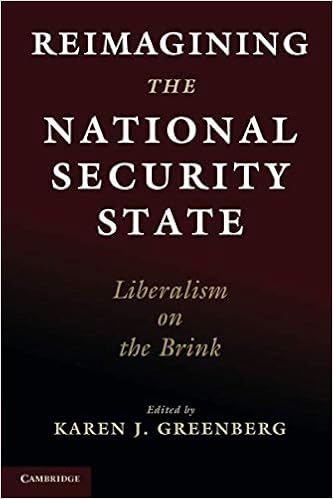
Mr. Berger brought up the juxtaposition of how the U.S. government seems so focused on foreign threats, such as North Korea and terrorism groups, and yet the most significant threats facing the U.S. today are domestic and are usually neglected. For example, consider how the U.S. healthcare system is challenged by the public health epidemic, not COVID19, but things such as pervasive heart disease, the lack of access to healthy food, knowledge of healthy lifestyles, and competent medical care. The U.S. suicide rate is far beyond the global average level, gun violence is pervasive, and the nation has an enormous neglected and abused prison population, — all huge concerns facing American society. He used these examples to challenge what is often thought of as a ‘national security concern’ and where our focus should be. When this filters down to current COVID-19 situation, Mr. Berger found that, perhaps unsurprisingly then, “there was no leadership, no real focus on what absolutely needs to be done.” Mr. Berger concluded that “a government has the obligation to make sure that its citizens are safe not just from external attacks, but from internal problems that are solvable”.
Ms. Neema Singh Guliani, Senior Legislative Counsel at the American Civil Liberties Union, then addressed what she saw as the main concerns when considering a pandemic as a national security issue, particularly surveillance. From a public health perspective, she said, people’s trust is essential, and “to gain that, we need transparency.” This is what makes invoking the national security infrastructure during a public health crisis problematic – that system is often abused domestically and doesn’t invoke trust by many Americans. Along with a lack of transparency, national security surveillance is criticized for its discriminatory targeting. To that end, Guliani stressed that the same individuals who the national security infostructure has traditionally discriminatorily targeted are the same as those who are suffering disproportionate harms during the pandemic. She also elaborated on concerns of individual privacy and took up the issue of contact tracing as a case in point. Traditionally, contact tracing in epidemiology occurs between public health authorities and individuals and involves consent. But there are serious concerns when the national security authorities are able to trace individuals without their consent. The controversial use of tracking by the Israeli Government during the pandemic is an illustrative example. (It should be noted that the Israel Supreme Court recently ruled that the Executive’s authorization of the program violated the nondelegation doctrine).
Given the challenges the use of technology poses in these instances, any future use of this technology must have oversight and Ms. Guliani proposed that the new tools should be “restricted for public health only.”
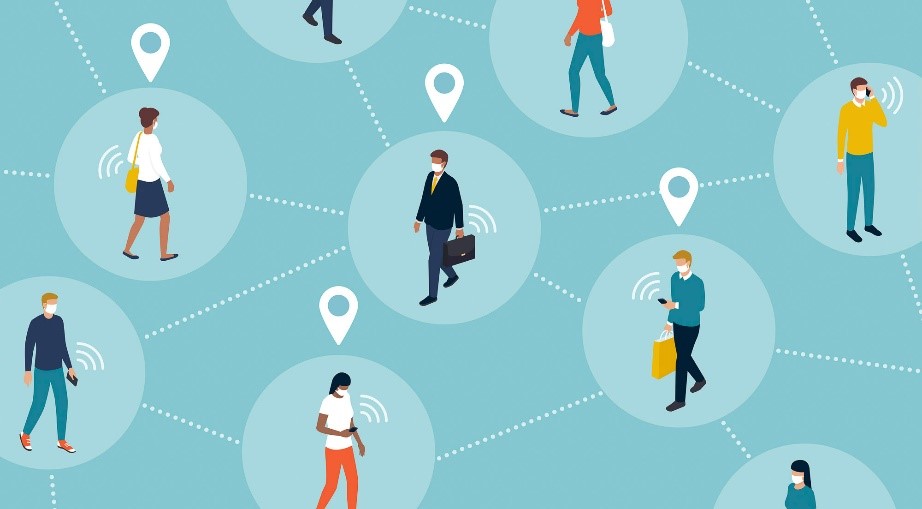
The first question during the question and answer portion of the webinar addressed how to use technologies while still protecting the right to individual liberty. Mr. Weber admitted that while COVID-19 offers some opportunities for promising technological developments that could keep us safer in the future, it also raised some serious challenges. Ms. Guliani cautioned that technologies may not work sometime. She took the example of Bluetooth signals being used for contract tracing, as it cannot necessarily recognize if you and a neighbor are close and yet separated by an apartment wall (i.e., cannot spread an infection to you by the proximity your phone flags). She also emphasized that technology cannot solve every problem. For example, a notification of potential COVID-19 exposure itself is inadequate if the following testing is absent. Mr. Berger raised concerns over who managed the proposed technology and discussed issues related too confidentiality and misinformation. As regards questions related to protection from future pandemics (whether naturally occurring or man-made), Mr. Weber suggested that CDC and HHS should continue to function as primary authorities for domestic public health, but that the federal government must make it a priority. Currently, the response at the federal level has been to ‘flatten the curve’ and ‘learn how to live with it,’ as opposed to fight it and defeat it as other countries have been doing. Professor Sadat joined the discussion by adding that to take measures internationally, treaties like Biological Weapons Convention are usually weak in terms of enforcement. Mr. Weber further explained this was partially due to the absence of verification procedures, which from his viewpoint, was “a symptom of the UN system and multilateralism.”
To close the lively webinar out, Mr. Weber offered a final thought: “one of the good things that will come out of this pandemic is a recognition by countries that we need to increase cooperation among and between countries so we can prevent this from happening again”.
This webinar was the third in the series. It can be watched online.
Earlier webinars were held on COVID-19 and International Law: A Snapshot and Immigrants & Refugees during COVID-19: State Responses and Responsibilities.


